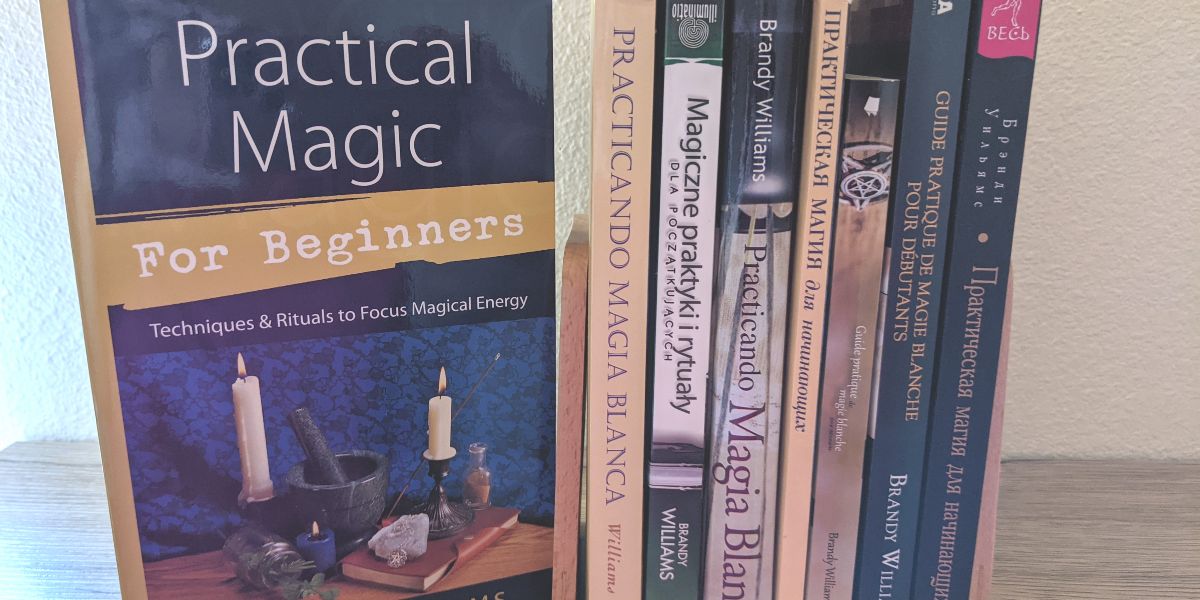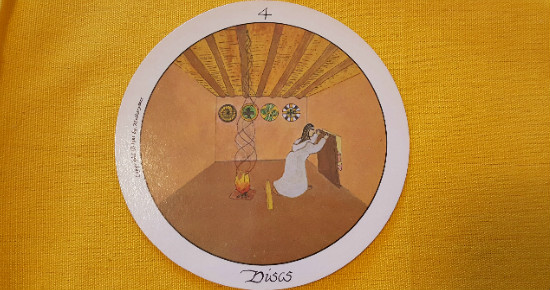I wrote Practical Magic fifteen years ago as a book to introduce people to magic. I’m very proud and happy that it continues to help people today.
It all started with School of Night. Seven of us banded together to form a magical teaching system in the early 1990s. We spent many intense but ultimately happy hours working out a curriculum. Then we conducted a year-long training camp that met once a week. That was really more of an apprenticeship than a class!
Once was enough for a course that went that long. The seven founders went our separate ways amicably with the agreement that we could all use the material and the name. (School of Night is too good to give up!)
Five of us kept on teaching, including my partners Alex and Ted. We broke the material up into four classes of eight weeks each. Students had to do the first class, Street Magics, before they could do the other three.
We taught those classes for five years. Then the five of us went our own ways. I was ready for a break! Also I didn’t want to continue to teach on my own, it’s a lot more fun to work with other people. People still asked for Street Magics though. In that class we taught how to get started doing magic, but more importantly, how to learn magic. It was clear there was a strong need for this teaching.
I decided to put the material into a book. I didn’t call it Street Magics because that name belonged to the group. I also wanted to include just the material that I taught with my partners Alex and Ted, and leave out the material that my other teachers had contributed so they could teach and write about it themselves. Later, two of them taught Street Magics as a class again.
I wanted Practical Magic to be a foundation for any magical practice. It wasn’t just for Witches, or Ceremonial Magicians, or Druids, or Pagans, or any specific kind of western practitioner. It was important to me that anyone drawn to a magical path could pick up this book and get to work.
It was also important to me to explain why it worked. Many books on spellcraft and other kinds of magic just set out what to do: go out in the dawn and collect dew to put on a lavender sachet to give to your lover. Learning magic that way, spell by spell, it would take a long time to figure out how to do everything you wanted to do.
What I did instead was to outline the framework of western magic. Every magical system from Greece to England and America holds this information in common. You can learn it by apprenticing to a Witch, joining a magical lodge, connecting with a Druid grove or learning one of the reconstructed Pagan religions. But what if you aren’t drawn to any of those paths? As a lifelong iconoclast I have a great sympathy for the independent thinker. I wanted to make the information available to anyone who needed it.
Practical Magic teaches not only the what, but the how. How do you do magic?
- With your body: the magic of sight, sound and movement.
- With energy: identifying energy, moving it, using it.
- With correspondences: tying into the power of the elements and planets.
- With ritual: using tools, magical intent, and ritual space.
- With timing: catching the ebb and flow of the magical tides to power the work.
- With process: understanding polarity, sympathy, divination and other structural ideas.
I constructed a set of rituals to use for many magical purposes. This was both to give people a place to start and give an example of how to construct your own magical workings. The rituals are based on the combination of the elements and the planets. They’re actually candle spells. Take four candles in the colors of the elements and seven candles in the colors of the planets and inscribe the appropriate symbols on each of them. Each ritual combines one elemental candle and one planetary candle. Here’s an example, for prosperity you burn a green earth and blue Jupiter candle. I still have all those candles in my magic chest and use those rituals today!
When the book was drafted I definitely knew I wanted to approach Llewellyn to publish it. Fortunately I had a contact. I knew Donald Michael Kraig because we both wrote about sex magic. I saw him a lot in the period I wrote the book. He was living in Venice, California and I was flying there frequently for a corporate job. We’d walk along the boardwalk and talk about magic. He coached me on how to submit a manuscript. He was as happy as I was when it was accepted! He passed on the copy editor’s comments that it was a very clean manuscript which made us both proud. Don coached and encouraged many other writers. I’m happy I had the chance to get to know him (and play whack-a-mole at the Santa Monica pier!)
I pitched the book as part of a series:
- The Practical Magician
- The Woman Magician
- The Pagan Magician
- The Sex Magician
Llewellyn decided instead to bring the book into the “For Beginners” series. My acquisition editor said “We think it will do well there”. They were right! Practical Magic for Beginners is in its 15th year of publication and has been translated into numerous languages. It still sells well in Spanish as Practicando Magia Blanca. I love the subtitle: Amor, proteccion, limpias, dinero – love, protection, cleansing, money! The English subtitle “Techniques and Rituals to Focus Magical Energy” captures the intent of the book.
I did go on to write The Woman Magician. The Pagan Magician turned into For the Love of the Gods. I’ve realized that Ecstatic Ritual, Practical Sex Magic is my book on sex magick, and I’ve turned instead to learning about Tantra (which is not just sex magick!) and how it has informed western magic. My most recent book Cord Magic brought me back to my roots in practical magic.
It’s interesting to look at Practical Magic for Beginners after all this time. My thinking about polarity definitely shifted as I wrote The Woman Magician – today I would say that polarity has nothing to do with gender. For the Love of the Gods traced the foundation of western magic in Mediterranean Pagan religion. Today I emphasize the Pagan context of our magic.
I’m proud to have written a book that makes magic accessible to anyone who wants to use it. Everyone needs practical magic.



